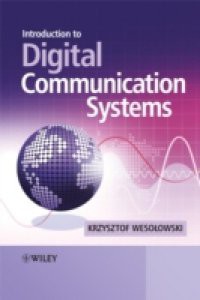Combining theoretical knowledge and practical applications, this advanced-level textbook covers the most important aspects of contemporary digital communication systems. Introduction to Digital Communication Systems focuses on the rules of functioning digital communication system blocks, starting with the performance limits set by the information theory. Drawing on information relating to turbo codes and LDPC codes, the text presents the basic methods of error correction and detection, followed by baseband transmission methods, and single- and multi-carrier digital modulations. The basic properties of several physical communication channels used in digital communication systems are explained, showing the transmission and reception methods on channels suffering from intersymbol interference. The text also describes the most recent developments in the transmission techniques specific to wireless communications used both in wireline and wireless systems. The case studies are a unique feature of this book, illustrating elements of the theory developed in each chapter. Introduction to Digital Communication Systems provides a concise approach to digital communications, with practical examples and problems to supplement the text. There is also a companion website featuring an instructors solutions manual and presentation slides to aid understanding. Offers theoretical and practical knowledge in a self-contained textbook on digital communications Explains basic rules of recent achievements in digital communication systems such as MIMO, turbo codes, LDPC codes, OFDMA, SC-FDMA Provides problems at the end of each chapter with an instructors solutions manual on the companion website Includes case studies and representative communication system examples such as DVB-S, GSM, UMTS, 3GPP-LTE

